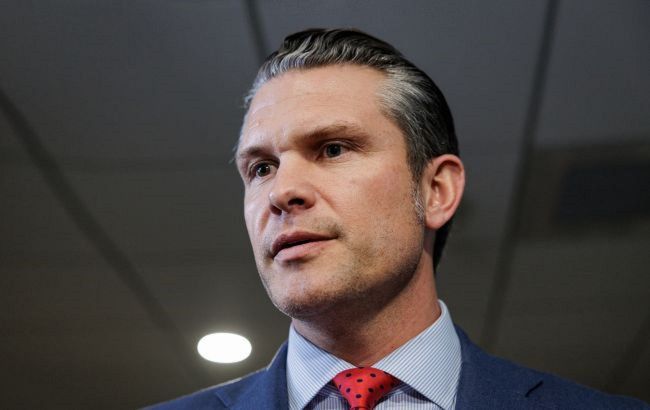Ramstein without US: Why Pentagon chief isn’t going to Brussels
 Photo: Pentagon chief Pete Hegseth (Getty Images)
Photo: Pentagon chief Pete Hegseth (Getty Images)
US Secretary of Defense Pete Hegseth will not participate in the meeting of the Contact Group on Ukraine's Defense (Ramstein format) to be held on Wednesday, June 4, at NATO headquarters in Brussels. The United States announced the official reason for its absence, Politico reports.
The news agency emphasizes that this is the first time in the last three years that the Pentagon chief will miss such a meeting.
The contact group, which brings together representatives of defense ministries from more than 50 countries, plays a key role in coordinating military assistance to Ukraine. However, the Donald Trump administration, which is currently leading the United States, is distancing itself from this format: back in February of this year, Washington handed over leadership of the group to the United Kingdom and Germany.
On Wednesday, US Ambassador to NATO Matthew Whitaker will take Hegseth's place. The US Defense Department explained the minister's absence due to a scheduling conflict. According to Pentagon spokesperson Kingsley Wilson, "The United States is focused on ending the war in Ukraine as quickly as possible, on terms that establish an enduring peace".
Despite the change in approach, the United States continues to supply Ukraine with weapons and equipment as part of a $61 billion aid package approved under President Joe Biden.
The contact group was established in April 2022 by then-Pentagon Chief Lloyd Austin after Russia's full-scale invasion of Ukraine. Since February 2025, it has been chaired by British Defense Minister John Healey and German Defense Minister Boris Pistorius. Hegseth himself joined the meeting in May only via video link.
Ramstein meeting
NATO has recently announced that a new meeting of the member states of the Contact Group on Ukraine's Defense will take place in Brussels on June 4.
RBC-Ukraine has already written that the Pentagon chief will skip the Ramstein meeting.
The previous 27th meeting of the Ramstein Group was held on April 11. The meeting resulted in the announcement of new military aid packages and the creation of another coalition. More details about the results can be found in the RBC-Ukraine article.

